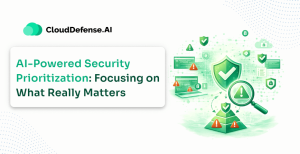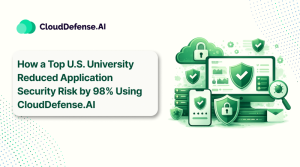CASB Defined
A Cloud Access Security Broker (CASB) is a security solution that acts as a gatekeeper between an organization’s on-premise infrastructure and its cloud-based services. CASBs are designed to provide visibility, control, and protection over data and applications hosted in the cloud, including Software-as-a-Service (SaaS), Infrastructure-as-a-Service (IaaS), and Platform-as-a-Service (PaaS) environments.
CASBs typically come as cloud-hosted services, but some vendors provide on-premise software or appliances to cater to different operational needs. Their comprehensive approach bundles multiple security technologies into a single solution, ensuring seamless and secure adoption of cloud technologies.
How does a CASB work?
A CASB uses a systematic three-step approach to deliver robust security for cloud environments, ensuring enhanced visibility, protection, and compliance for enterprise data and applications. Here’s how it works:
Discovery
Cloud Access Security Broker continuously monitors the cloud environment to detect all activities, applications, and data flows.
-
- Visibility: It identifies who is accessing which resources and from where, helping to uncover unauthorized or unmanaged applications (shadow IT).
- Automation: The tool operates autonomously, tracking activities in real time to provide a clear view of cloud usage patterns.
Classification
Once activities are detected, Cloud Access Security Broker evaluates their associated risks through advanced risk assessment mechanisms.
-
- Risk Assessment: Activities are analyzed to identify vulnerabilities, non-compliant behaviors, or misconfigurations.
- Prioritization: CASB classifies risks based on severity, ensuring high-risk threats are addressed immediately.
Remediation
After assessing risks, the Cloud Access Security Broker enforces security policies to mitigate threats and maintain a secure cloud environment.
-
- Policy Enforcement: It applies predefined security rules, such as blocking risky actions, encrypting sensitive data, or enforcing multi-factor authentication.
- Mitigation: If violations occur, CASBs automatically trigger appropriate responses, such as quarantining files, revoking access, or alerting administrators.
By following this structured process, CASBs deliver comprehensive, end-to-end cloud security. This approach helps organizations maintain compliance, secure sensitive data, and prevent unauthorized activities, enabling safe and efficient cloud adoption.
The 4 Pillars Of CASB
Cloud Access Security Broker has 4 pillars that it builds upon to provide complete security to organizations.
Compliance
Due to customers’ ever-growing concerns about the safety and privacy of their data, companies worldwide must strictly follow security regulations established by local, international, and government authorities. Compliance requirements such as HIPAA, GDPR, CCPA, and SOC 2 are examples of the most common regulatory requirements that companies must strictly follow.
Through its array of security features, Cloud Access Security Broker helps ensure compliance with all industry regulations. Features such as access control, visibility, and data protection help ensure the complete safety of the customer’s data.
Data Security
Ever since companies moved to the cloud, securing sensitive data has become more challenging. In comparison to storing on-site data centers back in the day, data is now stored on the cloud. This increases the risks of a data breach, as anyone with an internet connection can access information on the cloud.
CASB’s data protection protocol and access control help to provide robust security to data stored on the cloud. Accessibility is restricted, and all activities are monitored, providing an all-round security solution.
Visibility
Due to the shared responsibility model, organizations do not have complete visibility into the cloud environment, as the cloud service provider does not provide access to the underlying cloud infrastructure. Activities on the cloud, such as shadow IT, increase the risks of malicious activity that the company does not detect.
Cloud Access Security Broker provides complete visibility solutions to enterprises, allowing them to see who and what accesses their cloud applications. An in-depth insight is provided to companies, giving information on all attacks on the underlying infrastructure, and access logs allow one to view who has accessed cloud resources.
Threat Protection
Cloud services are more prone to threats as the cloud infrastructure is out of bounds of the company. Stolen credentials or unintentional clicks on malicious content can also cause employees to lose their accounts, opening the doors to threat actors.
Cloud Access Security Broker employs strong threat protection solutions by detecting and mitigating threats in real time using its UEBA machine language model. In addition to its threat intelligence capabilities, CASB enforces strong access controls and visibility to all activities, allowing you to flag any malicious behavior.
Key Functions of CASB
Top Cloud Access Security Broker solution providers offer their services through cloud-based services. However, on-premise software and hardware options are also available. Here is more to what CASB offers using the varying features that make it different from traditional security solutions that companies use.
-
- Shadow IT Discovery: CASBs help organizations identify unauthorized or unmanaged cloud applications (shadow IT) used by employees, giving IT teams insight into potential security risks.
- Access Control: They enforce granular policies around who can access cloud applications, from what devices, and under what conditions, reducing unauthorized access.
- Data Loss Prevention (DLP): CASBs monitor and control the flow of sensitive information, preventing accidental or intentional data leaks in cloud environments.
- Threat Protection: CASBs detect and minimize threats such as malware, ransomware, or unauthorized account usage in cloud services.
- Compliance: They offer audit capabilities and automated reporting to assist organizations in maintaining compliance with industry standards and regulations such as GDPR, HIPAA, and PCI-DSS.
How to implement a CASB?
CASB provides a range of solutions that can be customized to suit the needs of an organization’s cloud environment. The best way to implement CASB in your organization is to follow the five steps mentioned below.
-
- Assess: An assessment of your cloud environment needs to be carried out. This will allow you to have a clear understanding of the probable attack surface and what steps you can take to secure it.
- Vendor: Once you have decided on the required products, you need to find a trustworthy vendor. Many CASB solutions are available on the market, but not all of them are effective.
- Integrating With Cloud Services: Next, integrate CASB with your cloud services. To secure users’ access, use authentication methods such as SSO and MFA.
- Policy Configuration: Once the necessary steps are taken, you need to configure the security policies in accordance with your industry. Research or consult your CASB vendor to identify which policies work best for your company.
- Automated Monitoring and Threat-Detection: It is now time to automate your CASB to provide real-time visibility and threat prevention. Automating your security details allows you to employ a DevSecOps approach.
Benefits of Cloud Access Security Broker (CASB)
Providing cloud security has become challenging mainly due to the industry’s ever-growing threats. The company’s lack of control over the cloud environment has also made it harder to identify all probable attack surfaces. Companies with remote employees have seen an increase in attacks on the cloud environment due to threats coming from shadow IT and other malicious sources.
Most importantly, it has become harder for enterprises to ensure 100% data security for their customers. Due to anyone connected to the Internet being able to access the cloud environment, phenomena like data leaking, data breaches, and unauthorized access have become the norm. Some companies have resorted to acquiring services from different vendors to resolve these challenges, but this has proved to be complex for them to manage.
Cloud Access Security Broker came as a one-stop solution that helped counter all the major problems associated with cloud computing. There is no need to get different tools from different vendors and worry about their compatibility. Better access controls and visibility are provided to companies. Threat prevention protocols are applied, and data protection is prioritized.
Challenges of using a CASB
CASB is a useful security tool for any company, but companies should be aware of some associated challenges.
Integration With Cloud Environment: Companies must ensure that the CASB service they are getting is compatible with the cloud environment and will completely integrate with their system. Failure to do so will result in ineffectiveness.
- Mitigation Capabilities: CASB service providers may offer limited security services to companies. Some CASB tools can detect threats to a cloud environment but are not equipped to mitigate them. Thus, they are useless and a bad investment.
- Protecting Data: A CASB provider can directly access your sensitive data. Therefore, it is necessary to check the vendor’s reliability to ensure they won’t misuse the company’s data.
- Scalability: CASBs need to provide their services to multiple companies simultaneously, which keeps them busy. It is wise to choose a vendor with free resources to scale as your company grows.
How do CASBs integrate with SASE?
SASE, or Secure Access Service Edge, is a cloud infrastructure solution that can be integrated with CASB to provide overall security for a cloud environment. It is a one-stop solution for network infrastructure and security, making it highly preferred by enterprises around the world. To answer all CASB vs. SASE debates, SASE bundles already include CASB cyber security solutions. Companies looking for a more powerful option can consider choosing SASE over CASB.
Conclusion
Cloud computing is promising, allowing companies to scale and offer their services more effectively. However, it surely comes with some major concerns, such as data breaches and unauthorized access. Cloud Access Security Brokers help resolve these concerns and unlock the full potential of cloud-based infrastructures.
CASB allows companies to have more control over the cloud and provides more in-depth visibility of all activities, making it easier to detect threats. It has been a game changer that has revolutionized the cloud security industry and helped people embrace the prowess of cloud computing.







